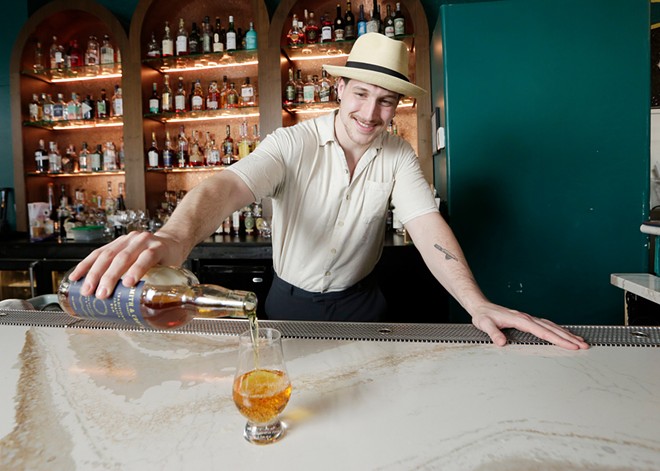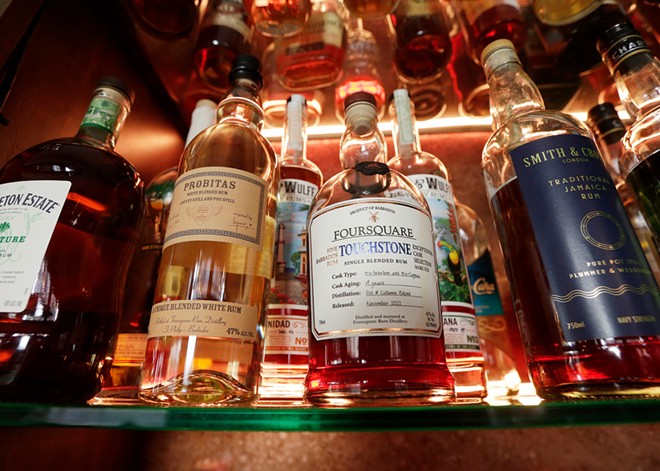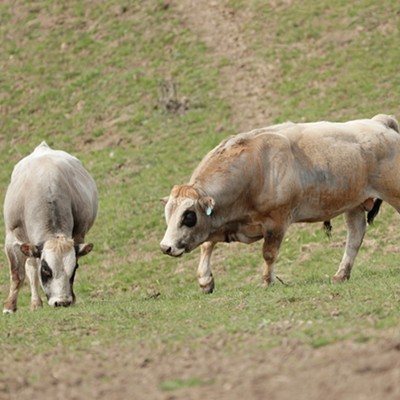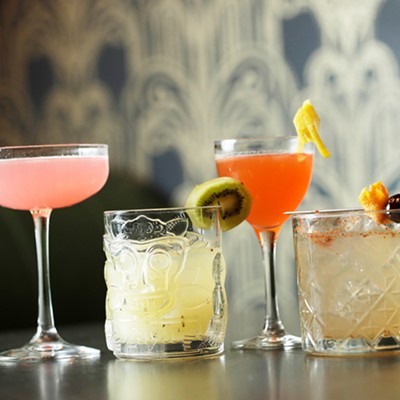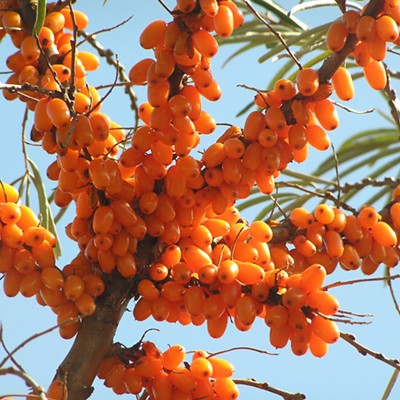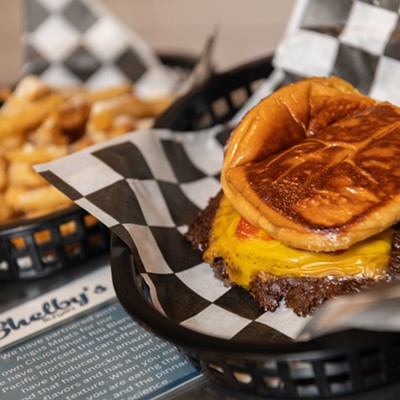In 1650, a lease agreement for 150 acres in St. Philip, Barbados, included "four new strong mastick Indigo flats and four large mastick cisterns for liquor for Rum." It's the earliest mention of rum known to date.
You could argue that cachaça, a Brazilian spirit from fermented sugar cane juice, or sdhu, a fermented sugar cane drink in India, are early predecessors to rum. But the rum that flooded the Americas in the 18th and 19th centuries came from the tradition of the West Indies, the exploitation of European colonizers, the greed of the transatlantic slave trade and royal navies.
But today, decolonized distillers are reclaiming their spirit and experimenting with hyperlocal innovations, making rum "the most diverse spirit in the world" — at least according to Spokane bartender Zach Thomas.
Thomas, who's only a couple years into bartending but already the bar manager at Emma Rue's downtown, has always had an admiration for the underdog. When he started the steep learning curve of cocktails, he noticed how quickly rum was dismissed — a lesser spirit for cheap drinks. But its history was sprawling, and its flavor profiles were endless.
So Thomas decided that Spokane needed more rum, making it his personal mission to educate the craft cocktail scene. He founded Spokane Rum Club, a tasting club usually held on the second Sunday of every month dedicated to traveling the world through rum.
"I really fell in love with the story," Thomas says. "As torrid as it is — we all know that it's pretty entangled with slavery, right? It's terrible. But what I really admire about it is the resilience of the people. How we can look back then on how awfully they were treated, and we can look into now about how big of an industry it is — how those people are now running these big corporations for their country."
For each Rum Club meeting, Thomas chooses three rums, either for their countries of origin, distillation methods or price points. The next meeting is all about pot still rums. Thomas will feature Plantarey Xaymaca Special Dry, Hamilton Jamaican Pot Still Black, and Novo Fogo Silver Cachaça. Tickets for the two-hour event, which includes 1-ounce pours of each rum, are $35 each.
Don't know what pot still means? Don't stress. Thomas preps a Powerpoint to share his research with the group, from distillation processes to native flora and weather patterns. He digs through the dense research so you don't have to. His copy of Modern Caribbean Rum by Matt Pietrek and Carrie Smith is stuffed full of handwritten Post-it notes with arrows, summaries and exclamation marks. He spends hours reading bartending blogs. He's adamant that he doesn't know everything, but his unstoppable enthusiasm has gotten him pretty close.
But the highlight of the group for Thomas is the discussion. Over petite, tulip-shaped tasting glasses, the club talks about what they taste, what they like or what they don't like. There are no wrong answers here, he assures newcomers.
At each of Emma Rue's comfy couches and intimate tables, flavor wheels help you find the words to articulate what your palate already knows. The colorful cheat sheet offers categories, then subcategories. If it tastes fruity, does it taste like apricot, apple or raspberry? If it's sweet, is it more vanilla or caramel? You can say it's earthy, or you can point out notes like grass, hops or dill. Even leather is an option. There's pretty much no way you could sound stupid.
"No one's a snob," Thomas says. "This is just about enjoying rum."
Of all the spirits, rum especially needs an "intimate introduction," Thomas thinks. Scotch, bourbon and tequila all have specific places of origin and distillation methods. But rum can be made anywhere in the world as long as it starts with sugar cane. The end results are miles and miles away from each other — literally and figuratively.
Most people think of rum as just a tiki drink, paired with thick syrups, tropical fruits and heavy cream. Unlike a swanky whiskey den or martini bar, tiki bars are as unserious as you get — think inflatable flamingos, Hawaiian shirts and drunk uncles.
Don't get him wrong, Thomas loves tiki. He runs Tiki Tuesdays at Emma Rue's and proclaims himself the Tiki Troubadour of Spokane. He can often be spotted strolling downtown in a straw fedora.
"The more people interested in rum, the better," he says. ""But tiki is a very American thing. Rum is so much more than tiki."
The two rum cocktails Thomas created for Emma Rue's spring menu this year are far from unserious. The Lime and Laundry is a milk-washed cocktail, and the Fort-de-France is stirred, not shaken.
As more people join Rum Club, Thomas will be able to bring in more expensive rums, like top-shelf Foursquare bottles or rare agricoles.
Know a rum you want to try but don't want to buy a whole bottle? Let Thomas know and he might try to source it for the club. The Hamilton featured this Sunday is thanks to a suggestion by a club member a couple months ago.
Every gathering is different, and you can pick and choose with afternoons to join. But once you start learning, it's hard to stop. Thomas is building a foundation now and hopes the club will get nerdier as people get more excited.
But no matter where the conversation goes, Thomas' core convictions stay the same.
"I just like things that taste good," he says. And, of course, "rum is best shared with friends." ♦
Spokane Rum Club • Sun, April 14 at 4:30 pm • $35 • Emma Rue's • 17 S. Howard St. • spokanerumclub.com • Instagram: @rum.club.spokane

